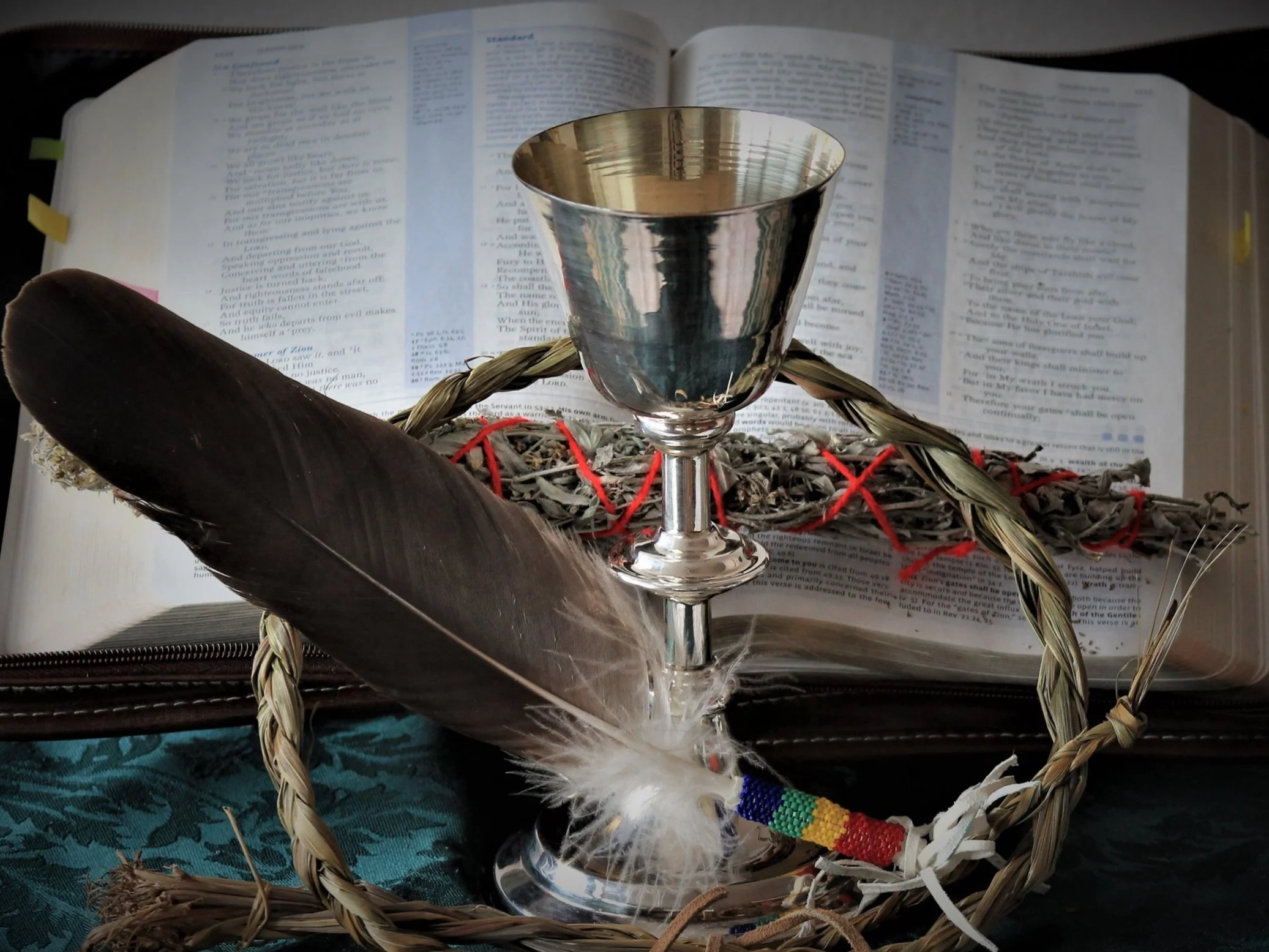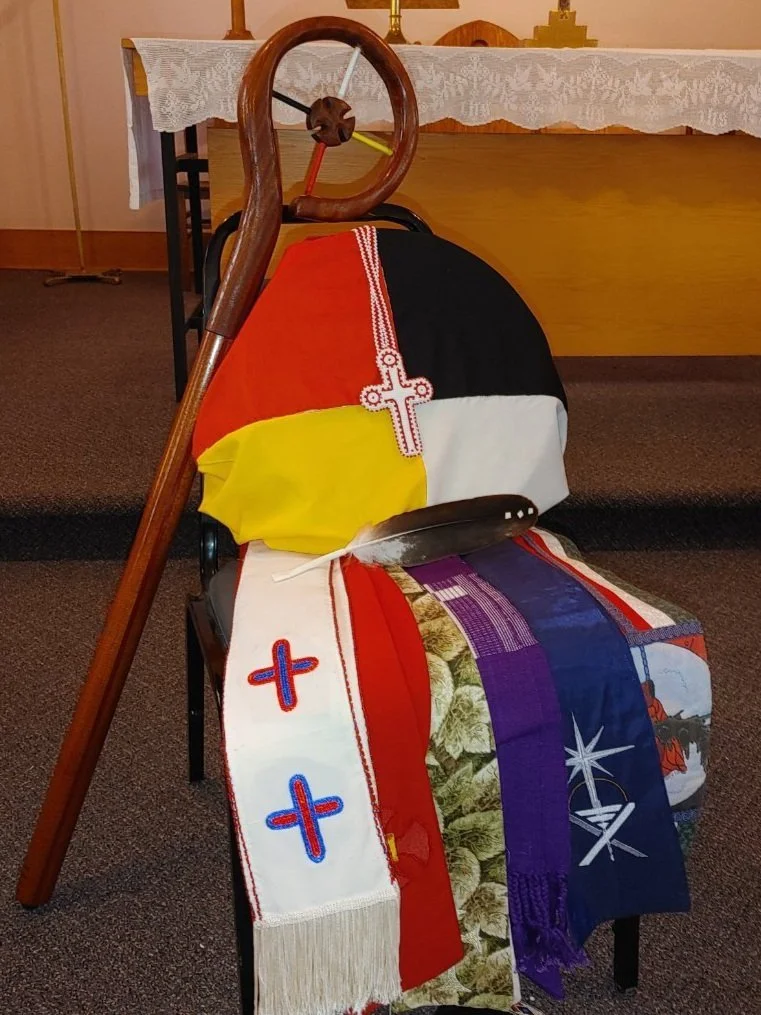Recommended educational resources on Reconciliation in parishes:
Anglican Indigenous Ministries
Do you know whose Land you are on? AJ Article
Stolen Lands, Strong Hearts — video
The Indian Act Explained — video
Doctrine of Discovery — Mennonite Documentary
Reserve107 — A Story of Hope and Healing
CBC Documentary Series 8th Fire
Episode One: Indigenous In The City
Episode Two: It's Time
Episode Three: Whose Land is it Anyways?
Episode Four: At The Crossroads
Indigenous Canada Free Online Course
University of Alberta
Reconciliation and Land Acknowledgements
The Rt. Rev. Archbishop Christopher Harper is the National Archbishop for the Sacred Circle, the Indigenous Church within the structures of the Anglican Church of Canada. When he was our diocesan Bishop, he wrote the following reflection on Land Acknowledgements. We offer it here in deep gratitude for his episcopal leadership and Indigenous witness among us:
In the Revised Standard Version of the Holy Bible ‘Land’ is mentioned 1961 times, predominantly in the first five books of the Bible – also called the ‘Pentateuch’. Land mentioned that many times also denotes the importance and the connection with the identity of the peoples. To be disconnected and apart from the land is to be a lost tribe, in ‘Diaspora’.
Land Acknowledgements are now common place in most gatherings and situations. From Hockey/Football games to meetings to church services Land Acknowledgements are spoken as a step to reconciliation with Indigenous peoples and communities. But from an Indigenous perspective these acknowledgements can be problematic and superficial. Please don’t get me wrong; they are still an important step, but the acknowledgements are not the journey or the end in Truth and Reconciliation.
As Bishop of Saskatoon, I have asked that churches research the local historical connection and peoples in their particular locality. This I acknowledge means homework and responsibility for the churches. But we all know that when we personally invest in something, it means more than when we are given something freely. When you give a vehicle or even a brand new cell phone for example, the value and importance of it means less than when you sacrifice and save for it. So is true of the ‘Land Acknowledgements;’ unless you take the time to find out why and what words to use, the acknowledgement will mean little to you.
While our diocese has not had residential schools operating within its boundaries, we nevertheless commit with our wider Anglican church family to walk with our Indigenous relatives in new and healing ways.
Our diocese comprises a largely non-Indigenous membership. However, in 2018 we elected the Rev. Christopher Harper, hailing from Onion Lake First Nation as our diocesan bishop. In the four years he lead our Anglican diocesan family he taught us a lot about how to assist our Anglican parishioners in learning about the Treaties, the TRC Calls to Action, and his own personal history. We were sad to see him go, but know that he was called to a greater mission with our Indigenous Anglican relatives across the nation.
Media coverage of recent events has brought Indigenous realities and needs on the doorstep of every community and church. The 2021 finding of the 215 in Kamloops B.C. garnered the attention. opening anew the hearts and ears of Canada. Going forward, our steps in the Reconciliation efforts need to be listening and walking together — action, not just words alone.
This takes us back to again why we need to examine the Land Acknowledgements that are presently used. Reconciliation involves investing ourselves into research and dialogue with those who we try to acknowledge. Maintaining a safe distance from Indigenous realities, communities and ministry is contradictory. As much as we state that our churches sit on the land, so too our hearts and understanding need to be with the Indigenous peoples. This can only happen when we do more than just say the words and acknowledge, but to start actively walking with and understanding the need for change.
Throughout the journey of reconciliation, two words were always joined; Truth and Reconciliation, and new truth stands before us to acknowledge and employ.
+ Christopher Harper


